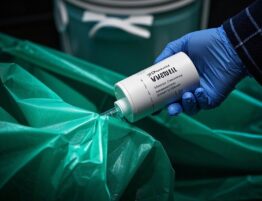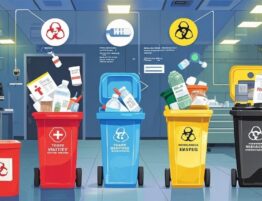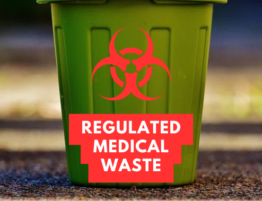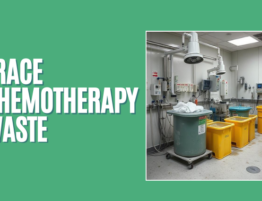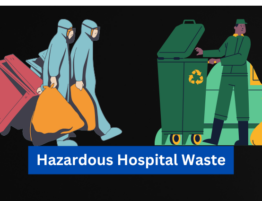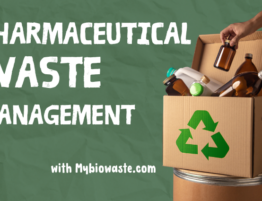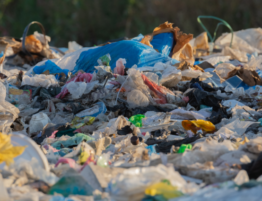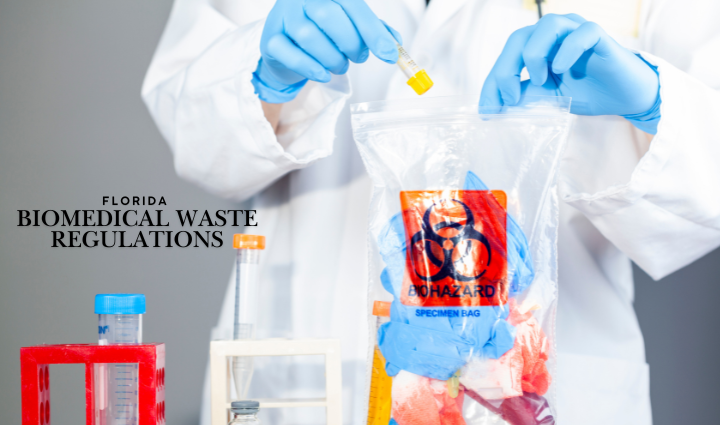
Biomedical waste management is crucial for protecting public health, maintaining environmental safety, and upholding legal compliance. Florida has some of the most comprehensive biomedical waste regulations in the country, designed to ensure that hazardous waste is handled, treated, and disposed of responsibly. In this article, we will Learn the key aspects of Florida biomedical waste regulations, helping you understand the rules and their purpose and how to comply with them effectively.
Whether you’re a healthcare provider, waste handler, or curious citizen, this guide will equip you with the knowledge you need to navigate Florida’s biomedical waste management system with confidence.
What Are Florida Biomedical Waste Regulations?
Florida biomedical waste regulations are rules established by the Florida Department of Health (DOH) to govern the proper management of waste generated by healthcare facilities, laboratories, and other medical establishments. These regulations aim to:
- Minimize public health risks.
- Protect the environment from contamination.
- Ensure safe handling and disposal of infectious and hazardous materials.
The Florida Administrative Code (FAC), Chapter 64E-16, provides detailed guidelines on everything from waste segregation to transportation and treatment requirements.
Why Are Biomedical Waste Regulations Important?
1. Public Health Protection
Improper disposal of biomedical waste can lead to the spread of infectious diseases. By adhering to Florida biomedical waste regulations, healthcare providers and facilities reduce the risk of exposure to harmful pathogens.
2. Environmental Safety
Biomedical waste, if not treated correctly, can contaminate soil, water, and air. Florida’s regulations ensure that waste is treated in a way that eliminates its hazardous nature before disposal.
3. Legal and Financial Implications
Non-compliance with Florida biomedical waste regulations can result in significant fines, legal action, and damage to a facility’s reputation. Following these rules protects organizations from unnecessary liabilities.
Key Aspects of Florida Biomedical Waste Regulations
1. Definition and Classification of Biomedical Waste
According to Florida law, biomedical waste includes materials contaminated by:
- Blood or bodily fluids.
- Sharps (needles, scalpels, etc.).
- Pathological waste (e.g., human tissues).
These materials are classified as infectious and require special handling to prevent harm.
2. Segregation at the Point of Generation
Segregation is a cornerstone of biomedical waste management. Waste must be separated at the point of generation into clearly marked containers, such as:
- Red bags for non-sharp biomedical waste.
- Puncture-proof sharps containers for needles and similar items.
3. Labeling and Storage Requirements
Containers must be labeled with the biohazard symbol and meet specific standards for durability and leak resistance. Waste should be stored in designated areas for no more than 30 days to minimize health risks.
4. Transportation and Disposal
Only licensed biomedical waste transporters are authorized to move waste off-site. Disposal facilities must adhere to strict guidelines for incineration, autoclaving, or other approved treatment methods.
5. Training and Record-Keeping
Facilities must provide regular training to employees who handle biomedical waste. They are required to maintain accurate records of waste generation, transportation, and disposal for at least three years.
Compliance Tips for Healthcare Facilities
1. Develop a Comprehensive Waste Management Plan
A robust waste management plan ensures all staff understand and follow Florida biomedical waste regulations. The plan should include procedures for segregation, storage, transportation, and emergency response.
2. Partner with Certified Waste Management Companies
Work with licensed biomedical waste handlers to ensure your waste is disposed of in compliance with state laws.
3. Stay Informed About Regulatory Changes
Florida periodically updates its regulations to align with advancements in waste management practices. Stay informed to ensure your facility remains compliant.
4. Conduct Regular Audits
Internal audits help identify gaps in compliance and provide opportunities for improvement.
Frequently Asked Questions About Florida Biomedical Waste Regulations
1. What is considered biomedical waste in Florida?
Biomedical waste includes materials contaminated by blood, bodily fluids, sharps, and pathological waste. These items pose a risk of infection and must be handled according to state regulations.
2. How long can biomedical waste be stored?
Facilities in Florida are permitted to store biomedical waste for up to 30 days, provided it is kept in properly labeled, secure containers.
3. Do all facilities need a biomedical waste permit?
Yes. Any facility generating biomedical waste in Florida must obtain a permit from the Department of Health and adhere to the state’s regulations.
4. What happens if a facility violates biomedical waste regulations?
Violations can result in fines, legal action, or even the suspension of a facility’s operating license. Non-compliance also poses significant health and environmental risks.
5. Are training programs mandatory for employees handling biomedical waste?
Yes, employees who manage biomedical waste must receive regular training to ensure they understand proper handling and disposal procedures.
6. How is biomedical waste treated before disposal?
Common treatment methods include autoclaving, incineration, and chemical disinfection, all of which neutralize hazardous materials.
Partner with MyBioWaste for Safe and Reliable Medical Waste Disposal
Compliance with Florida biomedical waste regulations is crucial for safeguarding public health and the environment. At MyBioWaste, we specialize in providing cost-effective, reliable, and compliant medical waste disposal services tailored to meet your needs.
Contact Us Today
Let MyBioWaste take the stress out of managing your medical waste. With years of expertise and a commitment to excellence, we are your trusted partner in biomedical waste disposal.
📞 Call us at: 855-276-9246
📧 Email us at: info@mybiowaste.com
📍 Visit us at: 4459 Industrial Park Rd., Green Cove Springs, FL 32043
Protect your facility, your staff, and the environment with MyBioWaste. Contact us today for a consultation and discover how we can simplify your waste management process!
Final Thoughts
Adhering to Florida biomedical waste regulations is not just a legal obligation, it’s a responsibility toward public health and environmental sustainability. Whether you’re a healthcare provider, waste handler, or concerned citizen, understanding and following these rules is crucial for ensuring safety and compliance.
Stay informed, invest in proper training, and partner with certified waste management services like MyBioWaste to handle biomedical waste responsibly. Together, we can build a healthier, safer, and more sustainable future.

